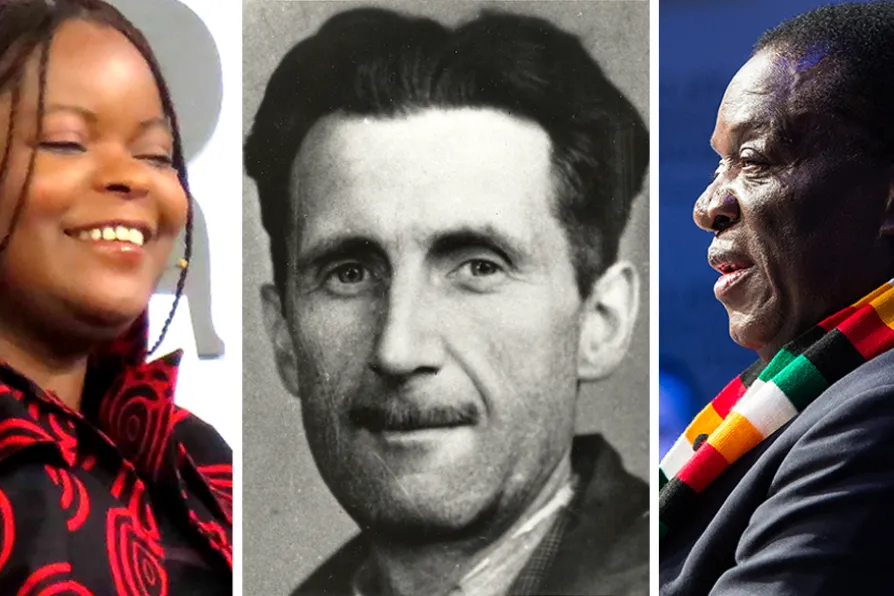Jimmy watches Countdown and tries to ignore his bills, grief, COPD and frailty. Meanwhile, his carer walks a tightrope between kindness and reality

 LITERATURE AND POLITICS: (L to R) Petina Gappah, George Orwell and Emmerson Mnangagwa
[(L to R) Smalltown Boy/CC - NUJ Public domain - World Economic Forum/flickr/CC]
LITERATURE AND POLITICS: (L to R) Petina Gappah, George Orwell and Emmerson Mnangagwa
[(L to R) Smalltown Boy/CC - NUJ Public domain - World Economic Forum/flickr/CC]
SINCE independence in 1980, Zimbabwe has in some ways become like Animal Farm. Like the pigs in the classic 1945 novel by English writer George Orwell, the country’s post-liberation leaders have hijacked a revolution that was once rooted in righteous outrage. In Zimbabwe, the revolution was against colonialism and its practices of extraction and exploitation.
The lead characters in Animal Farm have the propensity for evil and the greed for power found in despots throughout history, including former Zimbabwe president Robert Mugabe. Zimbabwe’s leaders have also acted for personal gain. They remain in power with no accountability to the suffering of the people they claim to represent.
Animal Farm’s relevance is echoed in celebrated young Zimbabwean author NoViolet Bulawayo’s recent novel Glory. Her satirical take on Zimbabwe’s 2017 coup and the fall of Mugabe is also narrated through animals. And visual artist Admire Kamudzengerere founded the Animal Farm Artist Residency in Chitungwiza as a space for creative experimentation.

Heart Lamp by the Indian writer Banu Mushtaq and winner of the 2025 International Booker prize is a powerful collection of stories inspired by the real suffering of women, writes HELEN VASSALLO

How underground bands formed a vital part of the struggle against white supremacy












